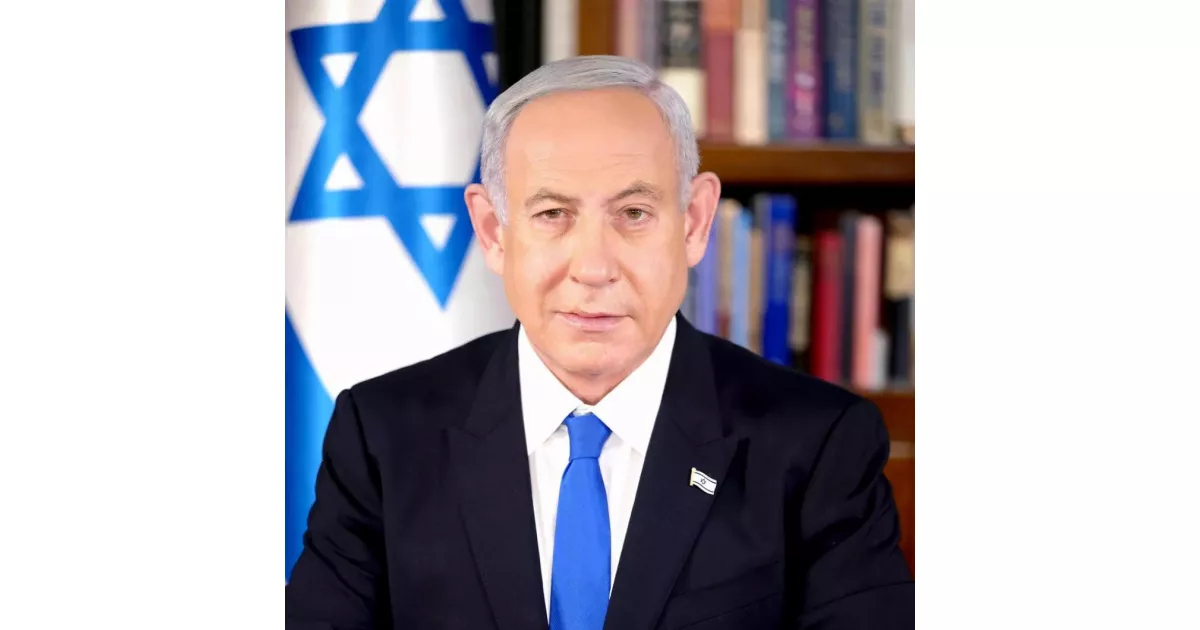A success timeline featuring the most significant achievements of Benjamin Netanyahu.
Benjamin "Bibi" Netanyahu is a prominent Israeli politician and diplomat. He currently serves as the Prime Minister of Israel, a position he assumed in 2022. Notably, he also held this office for two previous terms: from 1996 to 1999 and again from 2009 to 2021. His cumulative time in office makes him the longest-serving prime minister in Israeli history. He has been a central figure in Israeli politics for over two decades, shaping the country's policies and international relations.
1993: Elected as chair of Likud
In 1993, Benjamin Netanyahu rose to prominence after his election as chair of Likud, becoming leader of the opposition.
1993: Victorious in Likud party leadership election
In 1993, the Likud party held a party leadership election, and Netanyahu was victorious.
May 1996: Won the Israeli legislative election
Benjamin Netanyahu won the 1996 Israeli legislative election, which took place on May 29, 1996 becoming the youngest person in the history of the position and the first Israeli prime minister to be born in the State of Israel.
1996: Became first directly elected Israeli Prime Minister
In 1996, Benjamin Netanyahu became the first Israeli prime minister to be elected directly by popular vote.
1996: First term as Prime Minister
In 1996, Benjamin Netanyahu began his first term as Prime Minister of Israel.
1996: Netanyahu's Likud party victory in the Israeli general election
In 1996, the bombing campaign and the Israeli intelligence services failure to prevent it, led to the defeat of Prime Minister Shimon Peres and the Israeli Labor Party in the Israeli general election and victory of the Likud party of Netanyahu, who opposed the Oslo Accords.
2003: Appointment as Finance Minister
From 2003 to 2005, Benjamin Netanyahu served as finance minister, introducing a welfare to work program, a program of privatization, reduced the public sector, streamlined taxation, and passed laws against monopolies and cartels to increase competition.
December 2005: Netanyahu retakes Likud leadership
On 20 December 2005, Netanyahu retook the leadership with 47% of the primary vote.
August 2007: Netanyahu reelected as Likud chairman
On 14 August 2007, Netanyahu was reelected as chairman of the Likud and its candidate for the post of prime minister with 73% of the vote.
February 2009: Netanyahu designated as Prime Minister
In February 2009, Netanyahu was designated by Israeli President Shimon Peres to succeed Ehud Olmert as prime minister, and began his negotiations to form a coalition government.
March 2009: Netanyahu's government approved by Knesset
In March 2009 Netanyahu presented his cabinet for a Knesset "Vote of Confidence" on 31 March 2009. The 32nd Government was approved that day by a majority of 69 lawmakers to 45 and the members were sworn in.
July 2009: Government Approval and Economic Measures
In July 2009, a survey indicated that most Israelis supported Netanyahu's government, giving him an approval rating of 49 percent. Also in July 2009, Netanyahu lifted checkpoints in the West Bank to allow free movement and flow of imports, resulting in an economic boost.
2009: Became Prime Minister Again
After the 2009 legislative election, Netanyahu formed a coalition and became prime minister again.
2010: Formation of the Concentration Committee
In 2010, Netanyahu formed the Concentration Committee, which resulted in the Business Concentration Law of 2013.
July 2013: Tenders for Construction of Private Ports
In July 2013, Netanyahu issued tenders for the construction of private ports in Haifa and Ashdod to break what he viewed as the monopoly held by workers of the Israel Port Authority, so as to lower consumer prices and increase exports.
December 2013: Knesset Approval of the Business Concentration Law
In December 2013, the Knesset approved the Business Concentration Law, which intended to open Israel's highly concentrated economy to competition to lower consumer prices, reduce income inequality, and increase economic growth.
May 2015: Election Results and Coalition Formation
In the 2015 election, Netanyahu's Likud party led the elections with 30 mandates. President Rivlin granted Netanyahu an extension until 6 May 2015 to build a coalition. He formed a coalition government within two hours of the midnight 6 May deadline, with the Likud party forming the coalition with Jewish Home, United Torah Judaism, Kulanu, and Shas.
September 2020: Signing of Abraham Accords
In September 2020, the U.S.-brokered Abraham Accords, which led to normalization agreements between Israel and the United Arab Emirates and Bahrain, were signed by Bahrain's foreign minister, UAE's foreign minister, and Benjamin Netanyahu at the White House.
March 2021: Israel Achieves High Vaccination Rate
By March 2021, Israel became the country with the highest vaccinated population per capita in the world against COVID-19.
2022: Returned to premiership
After the 2022 election, Netanyahu returned to the premiership.
December 2025: Israel Recognizes Somaliland
In December 2025, under Benjamin Netanyahu's leadership, Israel became the first country to recognize Somaliland, a breakaway region of Somalia, as an independent state.
Mentioned in this timeline

Donald John Trump is an American politician media personality and...

Vladimir Vladimirovich Putin is a Russian politician and former intelligence...

Barack Obama the th U S President - was the...
Ukraine is a country in Eastern Europe the second-largest on...

Hillary Diane Rodham Clinton is a prominent American politician lawyer...

Kamala Harris is an American politician and attorney She served...
Trending
49 minutes ago Molly Ringwald joins Yellowjackets' final season, adding to the show's legendary cast.

50 minutes ago Nuggets' Adelman evaluates team; Gordon's injury sidelines him against OKC.

50 minutes ago Katie Boulter faces Jasmine Paolini in WTA Merida Quarterfinals; Hon Prediction

5 months ago Shonda Rhimes Shocked by 'Grey's Anatomy' Deaths, Compares Episodes to 'Snuff Film'

50 minutes ago Christian Horner's Red Bull F1 Exit: Verstappen's Camp Uninvolved, 'Drive to Survive' Reveals Drama

51 minutes ago Zhang defeats Navarro; Paolini trending amid WTA Sunshine Swing struggles for Americans.
Popular

Jesse Jackson is an American civil rights activist politician and...

Michael Joseph Jackson the King of Pop was a highly...

XXXTentacion born Jahseh Dwayne Ricardo Onfroy was a controversial yet...

Hillary Diane Rodham Clinton is a prominent American politician lawyer...

Barack Obama the th U S President - was the...

Susan Rice is an American diplomat and public official prominent...
